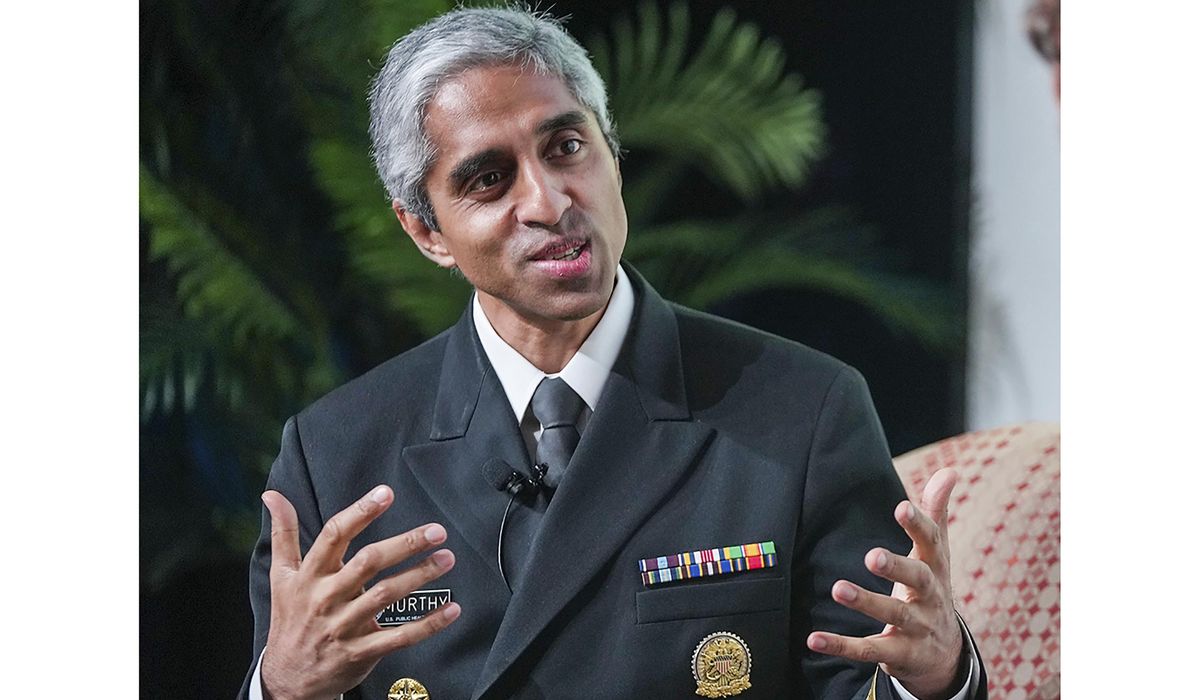


U.S. Surgeon General Vivek Murthy said Monday it is time to affix a tobacco-style warning on social media platforms warning they pose “significant mental health harms” for adolescents, a major effort to crack down on websites that appear to increase rates of anxiety and make teens feel bad about their bodies.
Dr. Murthy said the warning, which requires congressional action, would make parents more likely to restrict or monitor their children’s activities online.
“The mental health crisis among young people is an emergency — and social media has emerged as an important contributor,” he wrote in an op-ed for the New York Times. “A surgeon general’s warning label, which requires congressional action, would regularly remind parents and adolescents that social media has not been proved safe.”
The average daily social media use among adolescents — those ages 10 to 19 years old — is almost five hours. Dr. Murthy said nearly half of adolescents report that social media makes them feel worse about their appearance and youth who spend at least three hours a day on social media face double the risk of anxiety and depression symptoms.
Dr. Murthy pointed to lessons from the crackdown on tobacco, which showed warnings can alter behavior.
In the mid-1960s, Congress looked at evidence of a link between cigarettes and lung cancer and heart disease and required a standard warning: “Caution: Cigarette Smoking May Be Hazardous to Your Health.”
The surgeon general said warnings should not supplant other measures. Social media companies should be required to provide data about their impacts on youth to independent researchers, and Congress should pursue legislation that protects youth against harassment, abuse and exploitation online or prevents platforms from collecting sensitive data about youth, according to his op-ed.
Members of both parties say the pandemic fueled a mental health crisis among youth, and that shaming, peer pressure or inappropriate content on social media is only making it worse.
Some states have banned minors from creating social media accounts, and Meta CEO Mark Zuckerberg apologized to parents who said one of his platforms, Instagram, contributed to suicides and other adverse events.
“Why is it that we have failed to respond to the harms of social media when they are no less urgent or widespread than those posed by unsafe cars, planes or food?” Dr. Murthy wrote. “These harms are not a failure of willpower and parenting; they are the consequence of unleashing powerful technology without adequate safety measures, transparency or accountability.”
• Tom Howell Jr. can be reached at thowell@washingtontimes.com.
